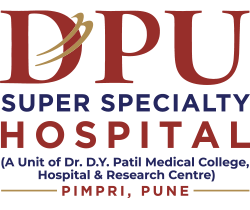Things You Need To Know About Neonatal Care

Neonatal care is a specialized medical practice focused on the first 28 days of a newborn's life. This period is often considered one of the most critical phases in a child's development and demands high levels of care to ensure the health and well-being of both the newborn and the mother.
In this blog, we explore six vital aspects of neonatal care that every parent, healthcare professional, and caregiver should know, particularly highlighting the role of neonatal care practices and facilities like those available at the best pediatric hospitals in Pune.
1. Understanding Neonatal Care
Neonatal care refers to the medical attention and treatment given to newborns, especially in their first month. This period is pivotal as the infant adjusts to life outside the womb, transitioning from fetal to neonatal life, which involves significant physiological changes. The care during these initial days can profoundly impact a child's long-term health and development.
2. The Role of Neonatal Intensive Care Units (NICUs)
One of the most crucial components of neonatal care is the Neonatal Intensive Care Unit (NICU). NICUs are specialized hospital wards designed to care for newborns who need extra medical attention. These units are equipped with advanced technology and staffed by highly trained healthcare professionals. Infants who may require NICU care include those born prematurely, with low birth weight, or with medical/surgical conditions that require immediate and intensive treatment.
NICUs provide a controlled, warm, and sterile environment crucial for protecting neonates from infections and managing their unique needs. The care in these units is comprehensive, involving monitoring vital signs, administering medications, and using specialized equipment like incubators and ventilators.
3. The Importance of Skilled Healthcare Professionals
Neonatal care demands a high level of expertise. Professionals in this field include neonatologists, pediatricians, neonatal nurses, lactation consultants and counselors, neonatal physiotherapists, and other specialized support staff. These individuals are trained to handle the complexities of newborn care, including resuscitation, feeding issues, temperature regulation, and managing congenital conditions. Their skill and precision are vital in ensuring the survival and healthy development of neonates, particularly those who are fragile or have health issues.
4. Support for Breastfeeding
Breastfeeding is a critical aspect of neonatal care. Breast milk provides essential nutrients and antibodies that help protect newborns from infections and promote healthy growth and development. Support for breastfeeding includes educating mothers on proper techniques, addressing any challenges they may face, and offering lactation consulting services. This support is vital in ensuring that both the mother and baby benefit from breastfeeding, which can have long-lasting positive effects on the child's health.
5. Focus on Parental Involvement and Support
While medical professionals provide the necessary clinical care, the involvement of parents in neonatal care is equally important. Parental involvement can enhance the effectiveness of medical treatments and contribute to the faster recovery and well-being of the newborn. Hospitals encourage practices like Kangaroo Mother Care (KMC), which involves skin-to-skin contact to improve thermal regulation and emotional bonding between the parent and the infant.
Educating and supporting parents on how to care for their newborns, especially after discharge, is also a critical component of neonatal care. This includes training on basic neonate handling, understanding the signs of distress, and knowing when to seek medical help.
6. Neonatal Care Practices
Effective neonatal care practices are crucial for ensuring the health of newborns. These include proper hygiene practices to prevent infection, regular breastfeeding/mono expressed breast milk/PDHM (Pasteurised donor human milk) to ensure nutrition, and careful monitoring for any signs of illness. Advanced practices such as using phototherapy for jaundice, administering surfactant for lung maturity, and performing minor surgical interventions are also part of neonatal care.
The implementation of these practices can differ based on the facility. Still, the objective remains the same: to provide the best possible care to ensure the healthy development of the newborn. Hospitals like the best pediatric hospital in India are equipped with state-of-the-art technology and follow the latest guidelines and procedures in neonatal care.
7. Challenges in Neonatal Care
Despite advancements in medical science, neonatal care faces several challenges. These include dealing with the complications of premature births, genetic disorders, and infections. Economic and accessibility issues also significantly affect how effectively neonatal care can be delivered, particularly in less developed regions.
Addressing these challenges requires continuous medical research, training, and policy-making to ensure every newborn has access to the best healthcare services. Public awareness and education about neonatal care can also play a crucial role in improving neonatal health outcomes.
8. The Impact of Technological Advances in Neonatal Care
Technology plays a transformative role in neonatal care, enhancing the capabilities of medical teams to treat and monitor the tiniest patients. Innovations such as real-time monitoring systems, advanced ventilators, and non-invasive diagnostic tools have significantly improved the quality and effectiveness of care in the NICU.
For example, warmer and state-of-the-art incubators now provide controlled environments that mimic the womb, helping premature babies develop their lungs and other vital organs in a safe, regulated setting. These technological advances improve survival rates and reduce the long-term complications associated with prematurity and other neonatal conditions.
9. Importance of Nutrition in Neonatal Care
Nutrition is a critical factor in the growth and development of newborns, particularly those in NICUs. Breast milk is considered the best source of nutrition for most infants, including those needing intensive care. Hospitals often have lactation consultants to assist mothers in providing breast milk for their babies, even if they are unable to feed directly due to medical complications.
Human milk banks provide pasteurized, safe donor mothers' milk for babies who cannot receive breast milk for any reason. Proper feeding protocols and using human milk fortifiers when necessary can also play a crucial role in supporting the health and development of neonates.
10. Total Parenteral Nutrition (TPN)
Total Parenteral Nutrition (TPN) is a specialized form of medical nutrition therapy provided intravenously. It is used for neonates who cannot receive adequate nutrition through oral or enteral feeding due to medical conditions such as gastrointestinal disorders, severe prematurity, or after certain surgeries. TPN delivers essential nutrients, including carbohydrates, proteins, fats, vitamins, and minerals, directly into the bloodstream, ensuring that the newborn receives the necessary nourishment for growth and development. Close monitoring by healthcare professionals is crucial to manage and adjust TPN to meet the individual needs of each infant, ensuring optimal health outcomes.
11. The Role of Genetic Screening in Neonatal Care
Genetic screening is becoming an increasingly important part of neonatal care. Early identification of genetic disorders can lead to timely interventions that can significantly alter the course of treatment and improve outcomes.
Hospitals equipped with advanced genetic testing technologies and a team of geneticists and genetic counselors can detect potential issues much earlier, allowing for immediate and specific treatments. This proactive approach can make a substantial difference in managing conditions that might not be apparent at birth but could cause serious health issues later.
12. Training and Education for Neonatal Care Professionals
Training and education are essential for neonatal care professionals to stay updated with the latest medical advancements and care techniques. Continuous professional development ensures that neonatologists, nurses, and other healthcare providers are knowledgeable about the latest research and best practices in neonatal care. Workshops, seminars, and hands-on training can enhance their skills and efficiency, directly impacting the quality of care for newborns.
13. The Future of Neonatal Care
The future of neonatal care looks promising, given ongoing advancements in medical science and technology. Research is continuously uncovering new treatments and practices that can further improve newborn survival rates and quality of life.
Integrating artificial intelligence and machine learning into neonatal care practices promises to enhance diagnostic accuracy and treatment personalization. Moreover, telemedicine could expand access to expert neonatal care, making it available even in remote locations.
Conclusion
Understanding these aspects of neonatal care is crucial for anyone involved in newborn care. From specialized NICUs to highly skilled medical professionals and from parental involvement to advanced care practices, each element plays a significant role in safeguarding the health of our youngest members. At DPU Super Speciality Hospital, Pimpri, Pune, we emphasize the importance of each of these elements in our approach to neonatal care.
Our commitment to ongoing education, research, and healthcare accessibility will continue to enhance the outcomes of neonatal care, reflecting our societal values and dedication to the next generation.








